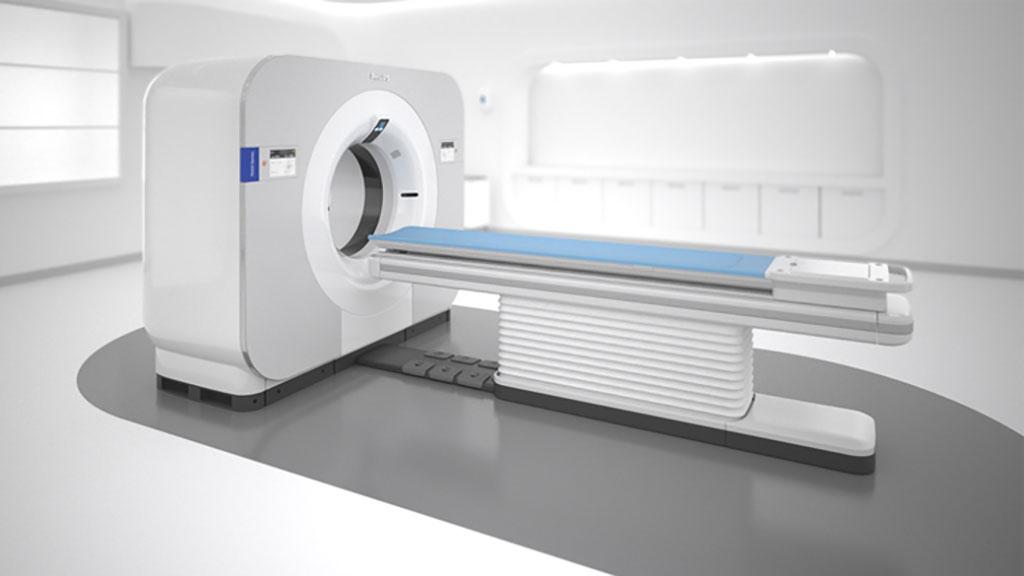Intelligent CT Provides Spectral Data for Precision Diagnosis
By MedImaging International staff writers
Posted on 08 Jun 2021
A fast, always on, spectral computerized tomography (CT) system reduces rescans and follow-ups while using the same dose levels as conventional CT scans. Posted on 08 Jun 2021
The Royal Philips (Amsterdam, The Netherlands) Spectral CT 7500 system is designed to deliver high quality spectral images for every patient on every scan 100% of the time to help improve disease characterization. The time-saving spectral workflow is fully integrated, enabling the technologist to get the patient on and off the table quickly, while still delivering high quality imaging that allows the physician to rapidly deliver a confident diagnosis and effective treatment plan for each patient.

Image: The Spectral CT 7500 delivers valuable clinical insights (Photo courtesy of Philips)
System features include a fast scanning table that can accommodate patients up to 330 kg and an 80 cm bore to accommodate larger patients. Cardiac CT scans can be performed in the sub-millisievert range. The system also offers larger anatomic scanning coverage per eight cm rotation. Dual-energy scanning is performed on tube and detector, which reduces cost, weight and imaging protocol requirements for create spectral scans. And since the spectral data is included in all scans, the radiologist can go back and retrospectively look at the scan at different energies.
“With such great human and financial costs due to misdiagnosis, Spectral CT 7500 sets a new standard of care where image quality, dose and workflow come together to deliver valuable clinical insights,” said Kees Wesdorp, chief business leader of precision diagnosis at Philips.. “This helps to bring clarity to defining moments in healthcare by delivering on certainty, simplicity, and reliability in every clinical area from cardiac care, to emergency radiology, diagnostic oncology, intervention and radiation oncology.”
“We rely on CT scans to provide us valuable insights. But conventional CT scanners are limited and can only show us where things are located, like lesions, cysts, bleeds, fractures and more. Philips spectral detector-based systems help to characterize what the finding is, not just where it is, providing us greater confidence in diagnoses,” said consultant radiologist, Finn Rasmussen, MD, DMSc, of Aarhus University (Denmark). “We have seen significant reductions in rescans and follow-ups by adopting spectral into our workflow for faster and more accurate diagnosis.”
Spectral CT, also known as dual-energy CT, measures tissue attenuation at two different energy levels, allowing computation of the two physical effects responsible for x-ray attenuation, the photoelectric effect and Compton scatter. Multiple spectral images can be created that show the attenuation that would result from a monochromatic x-ray source, iodine maps, effective atomic number maps, and ED maps. These spectral data have been shown to improve contrast enhancement, reduce artifacts, and better characterize tissues.














